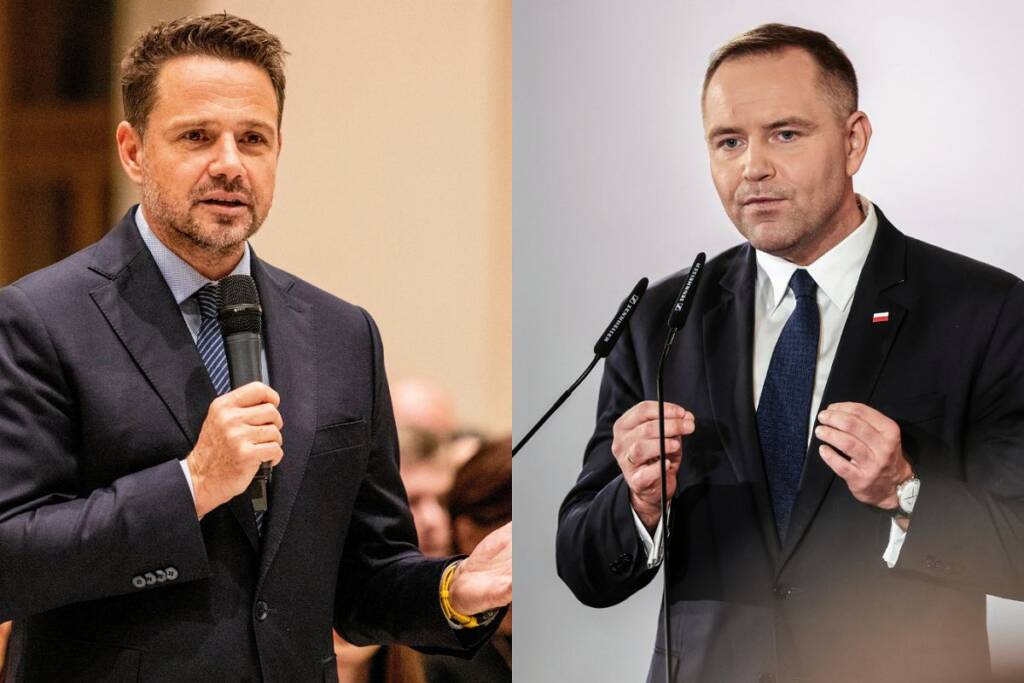Poland’s 2025 presidential election has emerged as a critical juncture in the nation’s political trajectory, with profound implications for its domestic policies and its role within the European Union. The first round of voting, held on May 18, 2025, has set the stage for a runoff between centrist candidate Rafał Trzaskowski and nationalist Karol Nawrocki on June 1.
The Contenders
Rafał Trzaskowski: The incumbent mayor of Warsaw, Trzaskowski, is aligned with Prime Minister Donald Tusk’s Civic Coalition (KO). He advocates for liberal, pro-European Union policies and aims to restore Poland’s democratic institutions, which have been under strain in recent years.
Karol Nawrocki: A historian and former head of the Institute of National Remembrance, Nawrocki is supported by the opposition Law and Justice (PiS) party. He is known for his conservative, nationalist views and has expressed skepticism towards EU integration.
The first-round results were closely contested, with Trzaskowski securing 31.1% of the vote and Nawrocki following closely at 29.1%. This narrow margin underscores the polarized nature of Polish politics. The high voter turnout, the highest since 1989, indicates a deeply engaged electorate, reflecting the significance of this election in shaping Poland’s future direction.
Potential Implications for Poland
1. Domestic Policy Shifts
If Trzaskowski Wins: A victory for Trzaskowski would likely lead to a reorientation of Poland’s domestic policies towards liberal reforms. This could include efforts to strengthen the judiciary’s independence, enhance media freedom, and address issues related to reproductive rights.
If Nawrocki Wins: Conversely, a Nawrocki presidency could entrench conservative policies, potentially reversing progress on democratic reforms and aligning Poland more closely with other right-wing governments in the EU.
2. EU Relations
Poland’s relationship with the European Union has been strained in recent years due to concerns over democratic backsliding and judicial independence. A Trzaskowski presidency could pave the way for improved relations, possibly unlocking EU funds that have been withheld due to these concerns. In contrast, a Nawrocki victory might exacerbate tensions, as his Eurosceptic stance could lead to further isolation within the EU.
3. Geopolitical Considerations
Poland plays a crucial role in Central and Eastern European geopolitics, especially concerning the ongoing conflict in Ukraine. A pro-European president like Trzaskowski would likely continue supporting Ukraine and advocating for a strong EU response to regional security challenges. On the other hand, Nawrocki’s more nationalist approach could lead to a reevaluation of Poland’s foreign policy priorities.
The upcoming runoff election on June 1, 2025, will be a decisive moment for Poland. The choice between Trzaskowski and Nawrocki is not merely a contest between two individuals but a referendum on the future direction of the nation. The outcome will have lasting implications for Poland and its domestic policies, its relationship with the European Union, and its role on the global stage.
As the election approaches, all eyes will be in Poland, awaiting the decision that will shape its political landscape for years to come.
